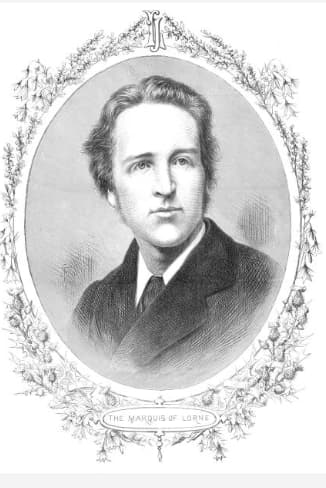Who Invented Ice Hockey?
Ice hockey’s origins are difficult to trace definitively, as its development spans centuries and involves several games that evolved over time. Some argue it began with ancient stick-and-ball games, such as those played in ancient Greece and Egypt, or even the Irish sport of hurling. Others believe it was shaped by the Scottish game of shinty, played on ice as early as the 1600s. The sport’s modern form emerged gradually, influenced by various cultures and historical events.

Early Influences of Ice Hockey
In the 1500s, paintings depicted people playing a game resembling ice hockey, with sticks and skates. One of the sport’s closest ancestors, bandy, was played on ice in England during the 1700s. By the 19th century, British soldiers had brought these games to Canada, where they became widely played, particularly in eastern Canada.
Ice Hockey in England: A Growing Popularity
By the late 18th and early 19th centuries, field hockey was a popular school sport in England, especially at institutions like Eton and Harrow. While field hockey was traditionally played on the ground, people began to play variations of the game on ice during the winter months. Royalty also played a role in promoting the game: Queen Victoria’s husband, Prince Albert, enjoyed ice hockey in the 1840s, and Prince Albert Edward (later King Edward VII) played a famous game in 1864. This royal involvement helped solidify the game’s popularity and contributed to the widespread use of the term “hockey.”
The Development of Hockey Rules
As interest in hockey grew, so did the need for formalized rules. In the mid-1800s, various books and publications, such as The Boy’s Own Book (1849) and The Boy’s Handy Book of Sports (1863), provided instructions for playing hockey on ice. These early guidelines are considered among the first sets of ice hockey rules, which would later be adapted in Montreal in the 1870s.

Ice Hockey’s Arrival in Canada
Although ice hockey was not originally invented in Canada, significant developments in the sport occurred there. Early forms of the game were introduced by British settlers and military personnel. Evidence of hockey being played on ice dates back to the 19th century in cities like Windsor, Kingston, and Halifax.
In 1825, Sir John Franklin, an explorer, mentioned playing hockey during his Northwest Passage expedition, but the first clear record of ice hockey in Canada came in 1875. That year, an organized game took place in Montreal at the Victoria Skating Rink, marking a key milestone in the sport’s development.
The First Organized Ice Hockey Game
On March 3, 1875, the first organized ice hockey game was played in Montreal between two teams of nine players. The game used a flat, wooden puck, which allowed for smoother gameplay and helped to avoid the dangers of using a ball. The Montreal Gazette reported the event, drawing comparisons to the traditional shinty game from Scotland. This game set the stage for modern ice hockey, with Montreal’s Victoria Skating Club playing a pivotal role in shaping the sport.
The Growth of Ice Hockey
While the game began in Canada, it quickly spread worldwide. By the late 19th century, Canada became the sport’s epicenter, with organized leagues and standardized rules. In 1920, Canada’s national team won the first ice hockey world championship at the Winter Olympics in Antwerp. The creation of the National Hockey League (NHL) in 1917, initially comprising four Canadian teams, further solidified Canada’s dominance in the sport.
Read More: 7 NHL Canadian teams and their facts
Today, ice hockey is a global sport, and the NHL remains the leading professional league. Though ice hockey’s roots are found in many countries, Canada’s role in developing the game and its global influence is undeniable.
Conclusion
The origins of ice hockey are a blend of cultural influences and evolving games played over centuries. While it is not exclusively a Canadian invention, it was in Canada that the sport truly took shape, with the first organized game played in Montreal in 1875. The legacy of early games such as shinty and bandy contributed to the development of modern ice hockey, making it one of the world’s most popular sports today.
FAQ’s: Who Invented Ice Hockey?
Who is credited with inventing ice hockey?
The sport of ice hockey was primarily developed in Canada, particularly in Montreal. It was here that the first documented indoor game took place on March 3, 1875. Key elements from that era, like the dimensions of the ice rink and the use of a puck, remain integral parts of the game today.
Who is known as the father of hockey?
Captain James Sutherland is often referred to as the “Father of Hockey.” He played a crucial role in the promotion and development of the sport, significantly contributing to its history and establishment.
Who established the original rules of hockey?
While various cities including Kingston, Halifax, Dartmouth, and Windsor claim to have originated hockey, McGill University played a pivotal role in formalizing the sport’s rules. Their contribution significantly shaped how hockey is played today.
Which ethnic group first developed hockey?
The origins of hockey, particularly ice hockey, are widely debated. While some historical accounts trace its beginnings to European influences, others link it to traditional Native American sports. Notably, there are assertions that Black residents of Nova Scotia were instrumental in inventing the game around 1815.
Which country pioneered hockey?
The early form of hockey shares similarities with shinty, an ancient game from Scotland. Although widely played in UK schools, its precise origins remain unclear. Ice hockey, however, evolved later in Canada.



